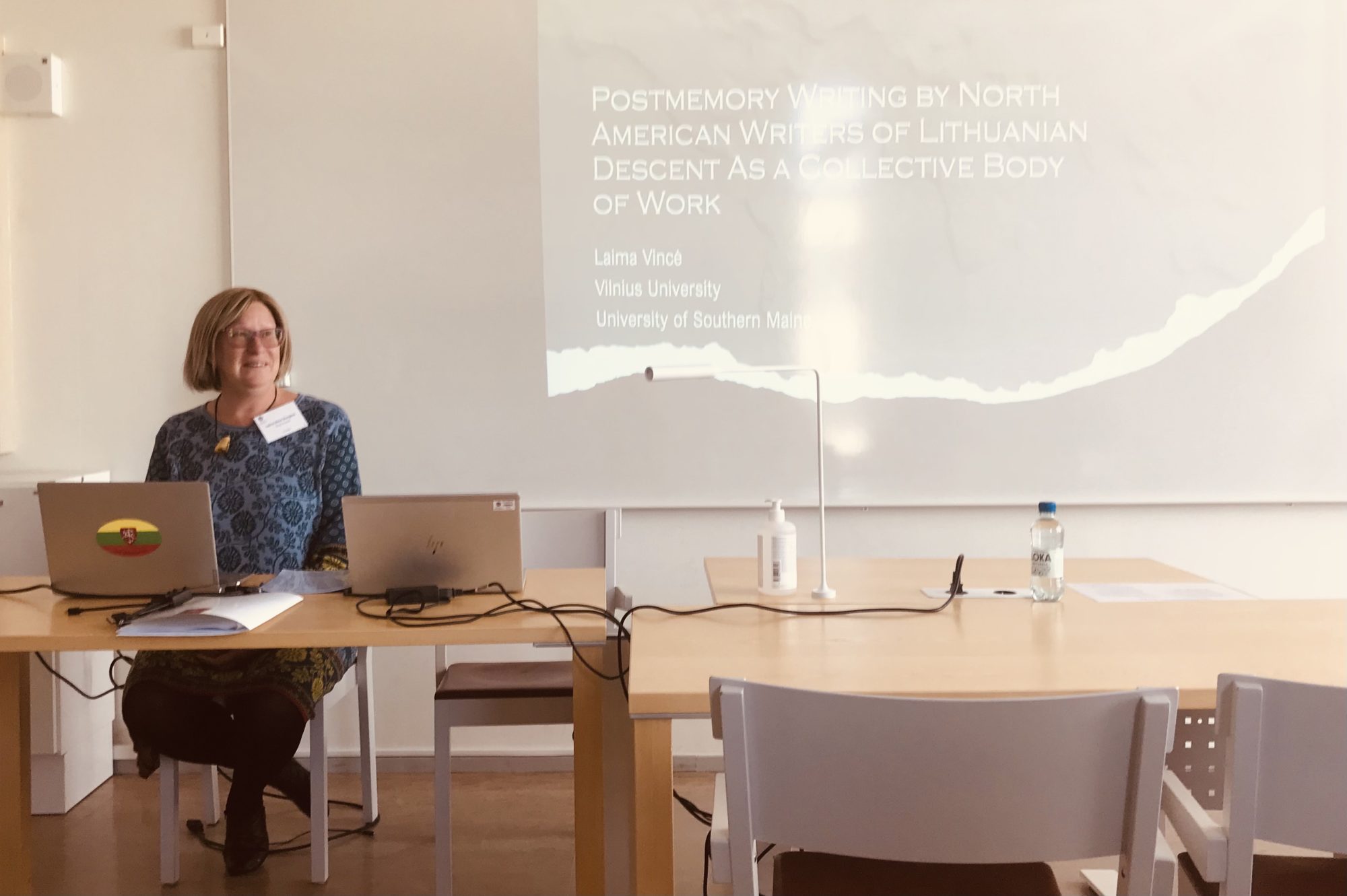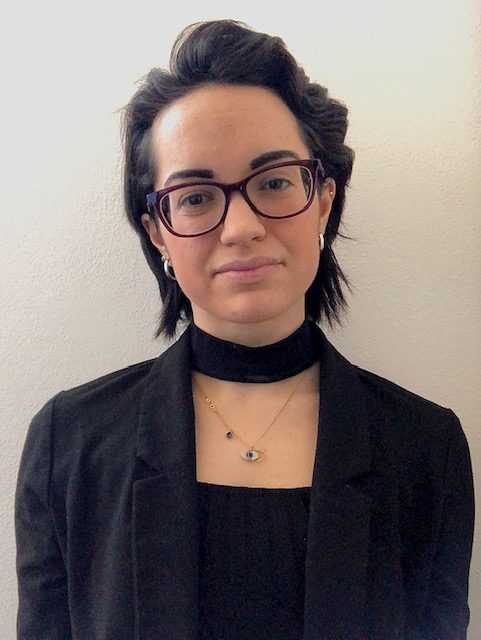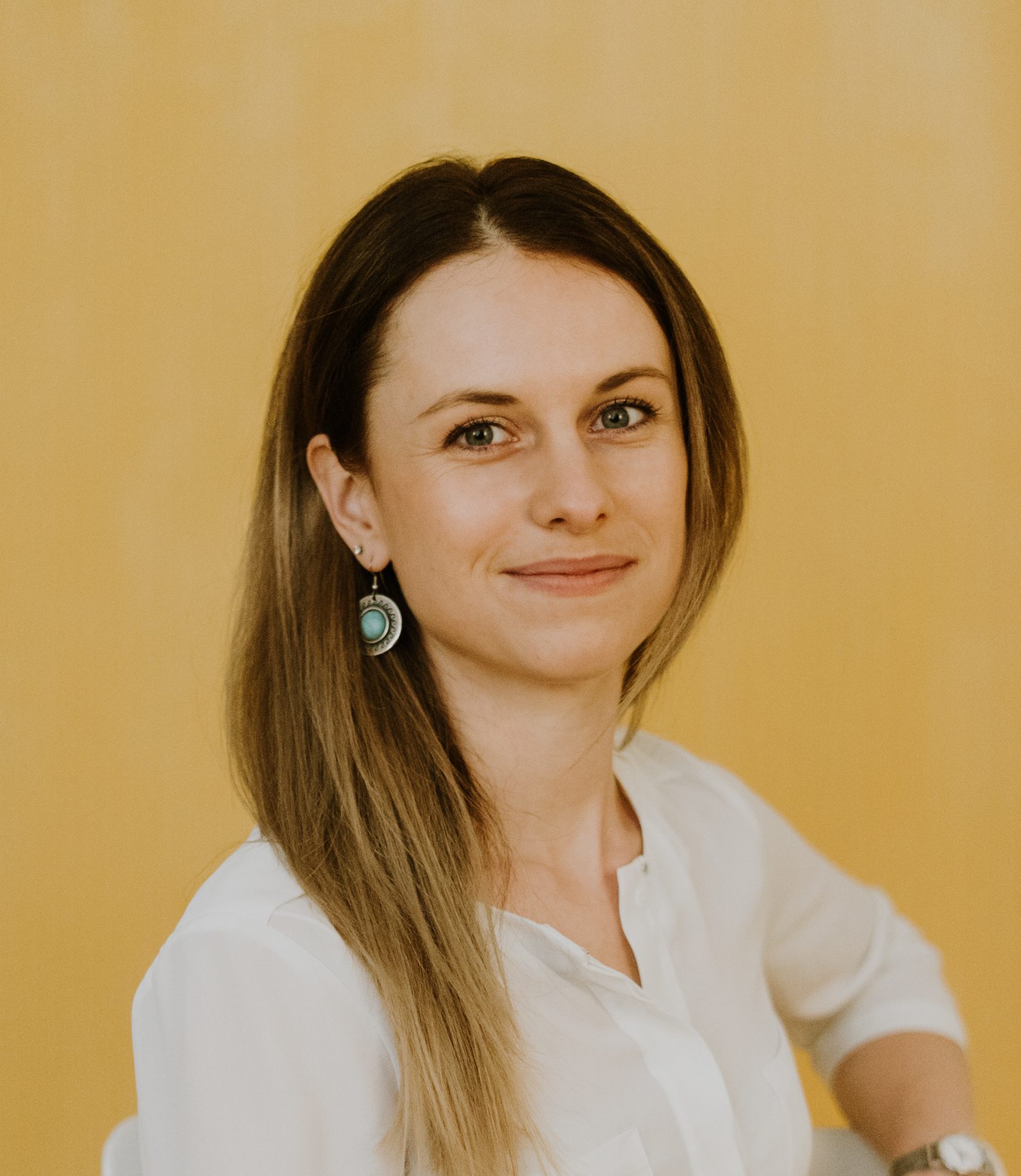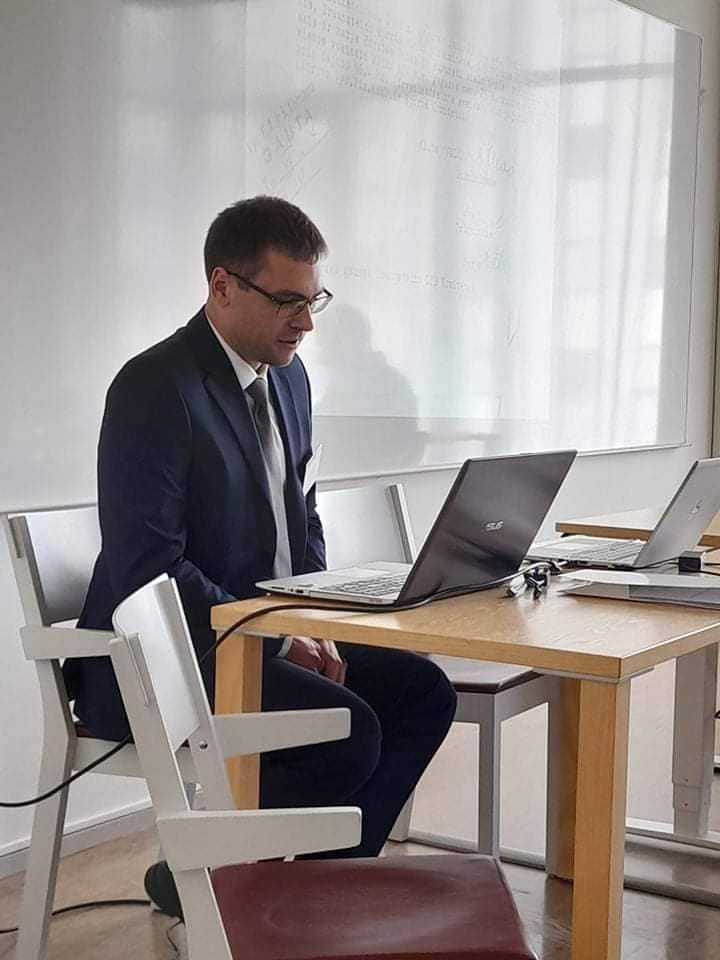The Association for the Advancement of Baltic Studies is happy to bring you stories and experiences from its 2021 student travel grant recipients who attended the 14th Conference on Baltic Studies in Europe (September 1–4, 2021, Uppsala, Sweden).
Applications for the AABS 2021 student travel grants were evaluated by the AABS Student Travel Grants Committee consisting of AABS Student Representative Kristo Nurmis, AABS Executive Officer-at-Large Guntis Šmidchens, AABS Administrative Executive Director Liisi Esse, and Member of the CBSE Organizing Committee Michael Loader. The grants were awarded to 16 students and early career scholars to support their travel to Uppsala in order to attend the CBSE 2021.
Laima Vince Sruoginis
Paper title: Postmemory Writing by North American Writers of Lithuanian Descent As a Collective Body of Work

Laima Vince Sruoginis presenting her work at the CBSE 2021 in Uppsala, Sweden.
Laima Vince Sruoginis is an Adjunct Assistant Professor of English at the University of Southern Maine and a doctoral student at Vilnius University. In late 2021, Laima will be defending her dissertation: “Memory and Postmemory in the Writing of North American Writers of Lithuanian Descent.” Laima Vince is a published writer in both the Lithuanian and English languages and a literary translator. She has published a novel and five works of literary nonfiction on Lithuanian topics, three anthologies of Lithuanian literature, and numerous translations, essays, and other academic works. Laima Vince was one of the first to research the life and poetry of the Litvak poet Matilda Olkinaitė, killed in the Holocaust in Lithuania at the age of 19. She translated her poetry and diary into English, which was published by the Institute of Lithuanian Literature and Folklore as The Unlocked Diary.
Martina Urbinati
Paper title: Renegotiating Urban Memories in the European Periphery: The Case of Kaunas as a Laboratory

Martina Urbinati holds a MA in Interdisciplinary Research and Studies on Eastern Europe at the University of Bologna, Italy. Martina’s main research interests include urban memory and conflicting interpretations of the historical past in Eastern Europe and the Baltic States.
Arvydas Grišinas
Paper title: The Alchemy of Political Symbols: The Case of Lithuanian Riots 2021

Catherine Gibson
Paper title: Seeing Through Numbers: Counting and Mapping Religious Communities in the Baltic Provinces, 1840–1914

Egidijus Balandis
Paper title: The Social and Cultural Functions of Sports in the Community of Lithuanian DPs (1945–1951)

